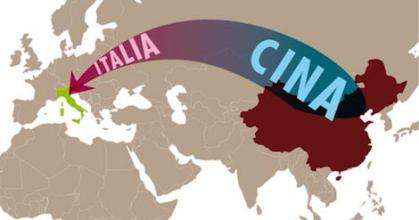Belt and Road
Your Present Location: PROGRAMS> Belt and RoadDing Gang: Chinese investment can uplift Italian ports
By Ding Gang Source: Global Times Published: 2019-3-21
The former residence of Marco Polo in Venice has been a must-see for Chinese tourists. This Venetian, who was born on September 15, 1254, is the most familiar Italian name to Chinese. He came to China with his father and uncle via the Silk Road in 1271. The Travels of Marco Polo has had profound influence.
Today, from China - the other end of the Silk Road - not only tourists go to Italy, but also engineers who design ports. China Communications Construction Company signed a contract in February 2017 with Italy for the design of Phase 1 of Venice Offshore Port with 4C3. A 20-meter deep offshore port will be built in the sea area 15 kilometers from the Malamocco Port and the offshore terminal project will be able to handle large container ships holding 18,000 to 22,000 TEUs.
Local port authorities have cooperated with Chinese enterprises to refurbish the historic port of Trieste, which lies opposite Venice. In Italian parlance, it attempts to revive the role Italy played during the Austro-Hungarian Empire.
Italy will be the first of the G7 countries to participate in the China-proposed Belt and Road Initiative (BRI), hoping to revive its sluggish economy by cooperating with China.
Currently, maritime trade between Europe and Asia is developing rapidly. Of the total trade between China and Europe, 63 percent is conducted by sea route. The number of freighters passing through the expanded Suez Canal is steadily rising. Italy hopes to increase business at its Mediterranean ports by participating in the BRI.
Chinese firms have done business at an important Greek port. The COSCO Group, a Chinese state-owned shipping and logistics services supplier, obtained a 35-year franchise right of No.2 and No.3 container terminals of the Piraeus port and acquired a 67 percent stake in the port.
Such methods of cooperation are controversial in the EU. However, by cooperating with the Chinese company, the Greek port has rapidly revived, and has become one of the most active logistics centers. The port has contributed significantly to the local economy.

The re-emergence of the Greek port has posed a challenge to Italy. Italian ports are superior to Greek ports. The Greek ports are located at the edge of Europe, while Trieste and Venice are closer to the heart of Europe. If freighters could go up the Adriatic Sea to Venice and Trieste, it will be quicker for them to get to the heart of Europe by road and rail.
In addition, Italy owns stronger industrial and logistics capabilities. The country's ports have the potential to build warehouses and trade processing zones. Therefore, Italy is striving for more foreign investment.
With the best short-haul shipping system in the region, Italy is a great power among Mediterranean countries and commands strategic influence. Having the aid of China's investment and technology, Italy will be able to strengthen its leading position in maritime transport and uplift its regional strategic standing.
Italy may never vie with Germany and France for EU leadership, but it ought to keep its current position. To remain a European power, the country relies heavily on the Mediterranean.
This is the underlying cause that is making Washington queer the pitch for China-Italy cooperation under the BRI. The US' strategic purpose is defined by its interests in Europe as well as around the globe. The US fears its key European allies drawing closer to China.
The EU is similarly concerned about Chinese companies' capacity to undertake mergers and acquisitions. Italy devolving its stake in ports by selling shares like Greece did is making the EU uneasy. The bloc hopes that Italy can restrict Chinese ownership and retain security controls of key assets like terminals and equipment.
The rise and fall of the ancient Silk Road has been tied up with Western capital's eastward expansion in the past 500 years. As oriental investment and technology is entering Europe along this old route, Eastern and Western capitals have started to mingle. Europeans will undoubtedly have mixed feelings, but their choice will determine their continent's fate and the world's balanced development.
The author is a senior fellow with the Chongyang Institute for Financial Studies at Renmin University of China.























































































 京公网安备 11010802037854号
京公网安备 11010802037854号





